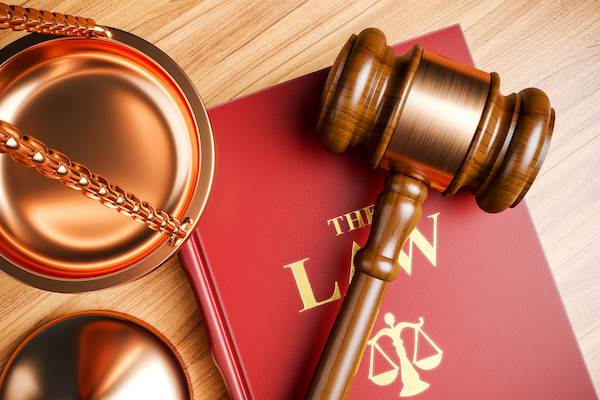In this section, our attorneys explain Nevada’s criminal laws and legal concepts, A to Z
Please note: Our firm only handles criminal and DUI cases, and only in California. We do not handle any of the following cases:
- civil matters
- CCWs or gun right restoration
- labor
- family law
- immigration
- landlord/tenant
- harassment
- restraining orders
And we do not handle any cases outside of California.
Call Us NowNevada Rules of Criminal Procedure – What are they?
Posted on

The Nevada Rules of Criminal Procedure (also called “The Nevada Rules of Criminal Practice” or the “N.R.Cr.P”) provide the framework and rules that judges, prosecutors, and defense attorneys like me must follow in Nevada’s 11 district courts.
The N.R.Cr.P was adopted only in March of 2021. Below is a summary of its 17 sections:
Rule 1 – Scope, Purpose, and Construction
The N.R.Cr.P governs all criminal cases in Nevada’s district courts. Where conflicts exist with local court rules, the N.R.Cr.P takes precedence.
The N.R.Cr.P does not pertain to juvenile cases or post-conviction proceedings.1
Rule 2 – Case Assignment
If you are arrested or cited for a crime, you get randomly assigned to a district judge. Though if you already have a pending case, then your case will be assigned to that same judge.2
Rule 3 – Appearance and Withdrawal of Attorney
Once you are represented by an attorney (whether by private counsel or a deputy public defender), you cannot appear in court on your own behalf without the court’s consent.
If you change attorneys mid-case, then your former attorney must transfer your case file and discovery (evidence) to your new attorney within five days of the substitution.3
Rule 4 – Initial Appearance and Arraignment
When you are charged by an information (which occurs in the vast majority of cases), your arraignment should be held as early as possible (and no more than 11 days) after the “bind over” from justice court to district court.
When you are charged by a grand jury indictment, your arraignment should be held within three days of your arrest. (If you were served with a summons instead, then your arraignment must be within 15 days.)4
In my experience, arraignments are very short procedures, usually under a minute. Though if I am arguing for a bail reduction or O.R. release, it can last much longer.
Rule 5 – Release and Detention Pending Judicial Proceedings
When you or the prosecutor wishes to change your pretrial detention status, you or they must make a motion in writing supported by an affidavit. Though if you and the prosecutors agree, you can dispense with the requirement that this motion be in writing.5
Rule 7 – Discovery/Discovery Motions
Prosecutors and your defense attorneys must provide each other discovery in a timely manner.
Any discovery disputes should be brought to the court’s attention quickly. Then the court may impose sanctions for failure to comply with discovery obligations.6
Rule 8 – Pretrial Motions
Prosecutors and defense attorneys must make any pretrial motions no less than 15 days before the trial.
The opposing side has 10 days to file an opposition to the motion. Then the moving party has three days to reply to the opposition.
Each motion should contain “points and authorities” in support of its arguments. Then the court can decide on whether to grant a motion without holding a hearing (unless one is required by law).7
One of the most common pretrial motions I file is a motion to suppress any evidence that the police found through an unlawful search and seizure. If the judge agrees and disregards the unlawfully-obtained evidence, the D.A. may be forced to drop your charge for lack of proof.
Rule 9 – Pretrial Writs of Habeas Corpus
When you file a pretrial writ of habeas corpus based on a lack of probable cause or lack of court jurisdiction, a hearing must be held within 14 days of the filing.8
Rule 10 – Stay Orders
If you have a related case in justice court, you or the prosecution can ask the district court to “stay” the justice court proceeding if:
- moving forward with the justice court case first would be impracticable, or
- the justice court already rejected a request to stay the case.
The moving party would have to show the district court that not granting the stay would cause a miscarriage of justice. The district court has discretion over whether to grant or deny the motion to stay.9

Nevada District Court cases can be appealed to the Nevada Supreme Court.
Rule 11 – Extending or Shortening Time
The court has the discretion to extend or shorten time limits for good cause shown.10
Rule 14 – Sentencing
If you are convicted, the judge must sentence you “without unreasonable delay.”11
In most cases, the judge will hand down a sentence right after the conviction. Though in more serious cases, I would ask the judge to give me several weeks to prepare for the sentencing hearing so I can present exhibits, witnesses, and other mitigating evidence in your favor.
Rule 15 – Continuances
The court can continue (postpone) the trial for good cause shown. Both you and the prosecutor can stipulate to a continuance, but the court must sign off on it.12
Rule 17 – Voir Dire
During jury selection (“voir dire”), the judge will conduct the initial examination. Then the defense and prosecutors may conduct a supplemental examination.
Parties can dismiss potential jurors
- “for cause” or
- without giving a reason (called a “peremptory challenge”).
Each party is entitled to four peremptory challenges (except for in death penalty or life imprisonment cases, where the limit is eight each).
If one side believes the other party is using a peremptory challenge due to the prospective juror’s race or other classification, that side can raise a “Batson challenge” with the court. The court will then decide whether to let the peremptory challenge go through.13
Rule 18 – Court Interpreters
The court must provide interpreters in cases where you, a witness, or a juror has limited English proficiency.14
Rule 19 – Appeals
If you wish to appeal your justice court or municipal court case, you have 10 days from the final entry of judgment to file a notice of appeal with the district court. Then you must file an opening brief within 45 days of the notice of appeal.
The state has 30 days to respond. Then you have 5 days to reply.15
Rule 20(a) – Miscellaneous Provisions
Any status conference must be held one week prior to the trial date (or upon further order of the court).16
Rule 20(b) – Miscellaneous Provisions
Attorneys cannot try to influence a law clerk about a case before the judge or judicial officer whom that law clerk serves.17
Additional reading
For more general information on criminal procedure, refer to these scholarly articles:
- How Criminal Law Dictates Rules of Criminal Procedure – Rutgers University Law Review.
- Core Criminal Procedure – Minnesota Law Review.
- The Place of “The People” in Criminal Procedure – Columbia Law Review.
- Why Civil and Criminal Procedure Are So Different: A Forgotten History – Fordham Law Review.
- Structures of Authority and Comparative Criminal Procedure – Yale Law Journal.
Legal References
- N.R.Cr. P. 1.
- N.R.Cr. P. 2.
- N.R.Cr. P. 3.
- N.R.Cr. P. 4.
- N.R.Cr. P. 5.
- N.R.Cr. P. 7.
- N.R.Cr. P. 8.
- N.R.Cr. P. 9.
- N.R.Cr. P. 10.
- N.R.Cr. P. 11.
- N.R.Cr. P. 14.
- N.R.Cr. P. 15.
- N.R.Cr. P. 17. See also: Ewish v. State (1994) 110 Nev. 221; Watson v. State (2014) 130 Nev. 764.
- N.R.Cr. P. 18.
- N.R.Cr. P. 19.
- N.R.Cr. P. 20(a).
- N.R.Cr. P. 20(b).
About the Author

Neil Shouse
A former Los Angeles prosecutor, attorney Neil Shouse graduated with honors from UC Berkeley and Harvard Law School (and completed additional graduate studies at MIT). He has been featured on CNN, Good Morning America, Dr Phil, The Today Show and Court TV. Mr Shouse has been recognized by the National Trial Lawyers as one of the Top 100 Criminal and Top 100 Civil Attorneys.

